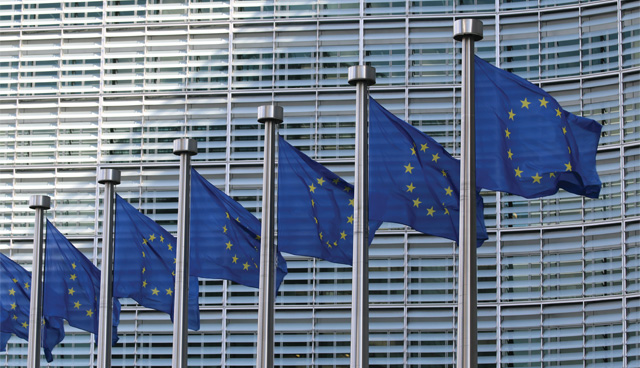EU review Renewables and Energy Efficiency Directives

The European Commission has launched a review of its Energy Efficiency and Renewables Directives.
The European Green Deal set out ambitions to increase the EU’s climate ambitions to at least a 50 per cent reduction in greenhouse gas emissions by 2030.
Such a shift likely requires existing legislation review and revision, with the Renewable Energy Directive (2018/2001/EU) and the Energy Efficiency Directive (2012/27/EU and 2018/2002/EU) set to be assessed.
The European Commission, in early August, published roadmaps for the review of both directives and opened a consultation which is set to close on 21 September, 2021, which will feed in to the Commission’s preparatory work for the reviews.
The roadmaps are set to compliment an impact assessment currently being carried out on the Climate Target Plan for 2030, as well as further work on the Emissions Trading System Directive, the effort sharing regulation, the land use, land use change and forestry regulation and the CO2 emissions performance standards for cars and vans. The results of the review and possible proposals are expected to be presented in June 2021.
Renewables
The Renewable Energy Directive (EU) 2018/2001 established a binding EU renewable energy target of at least 32 per cent for 2030. However, the introduction of the European Green Deal and subsequent post-Covid-19 Economic Recovery Package are set to underpin a desired green transition with higher levels of ambition. The European Green Deal presented the Commission’s plan to increase the 2030 greenhouse gas reduction target from 40 per cent to at least 50 per cent towards 55 per cent, compared with 1990 levels, in view of the objective of climate-neutrality by 2050.
These plans require a review of existing energy and climate legislation, including the 2018 Renewable Energy Directive. The Commission hopes that by September 2020 it will present its 2030 Climate Target Plan, indicating the extent to which the 2030 level of ambition for renewable energy could be increased to support the higher ambition for greenhouse gas reductions.
The Commission is also set to assess the National Energy and Climate Plans (NECPs) to gauge whether an ambition gap remains in the collective contributions to the renewable energy target set for 2030.
While Europe has made progress in decarbonising its electricity production through renewables, progress in other energy areas, including gas and heat has been much slower. Fossil fuel remains the main fuel used in sectors such as transport and industry and it is recognised that there is a need for all sectors to fully contribute to decarbonisation if 2030 and 2050 targets are to be met. Also, cost efficient accelerated development of sustainable renewable energy requires a co-ordinated approach in order to fully exploit the advantages of economies of scale and technological co-operation in Europe.
The specific objectives of the review seek to consider:
- the possible upward review of the minimum 32 per cent target for renewable energy set at EU level, including reviewing the level of ambition of sector specific measures, in line with the impact assessment of the 2030 Climate Target Plan;
- consideration of elements emanating from the Energy System Integration and Hydrogen strategies, where appropriate, including to foster electrification and renewable fuels such as green hydrogen; and
- review of other parts of the Renewable Energy Directive and possible introduction of new measures as appropriate to reflect the European Green Deal objectives and related initiatives.
The various options presented for the review include not changing the policy, with the Commission ensuring the completion of the existing directives for member states; introducing non-regulatory measures; raising the ambition level of the current directive and subtargets in line with the 2030 Climate Target Plan; amending the directive to translate into legal measures the actions proposed in other energy strategies of the European Green Deal; or a combination of the latter three.
Energy efficiency
Energy efficiency is a core element of the European Green Deal and is a guiding principle of EU energy policy. The EU has set headline targets to increase energy efficiency by 20 per cent for 2020 and by at least 32.5 per cent for 2030, embedded in the Energy Efficiency Directive (EED).
The Commission announced through the European Green Deal plans to increase the greenhouse gas emission reductions target for 2030 to at least 50 per cent towards 55 per cent, recognising the need to review relevant energy legislation by June 2021. The impact-assessment plan being prepared by the Commission is expected to provide indications on the necessary contributions of energy efficiency and renewable energy by 2030 to enable the achievement of higher climate ambitions for 2030, meaning a potential revision of the Energy Efficiency Directive.
The Directive was revised in 2018 as part of the Clean Energy for all Europeans package and introduced a requirement for a further review of the Directive by 2024. The current assessment aims to assess the effectiveness of the framework of the Directive and assess to what extent the objectives of the policy intervention have been achieved.
One of the challenges facing the greenhouse gas reduction target is the trend of increasing energy consumption since 2014, prior to the pandemic.
One of the challenges facing the greenhouse gas reduction target is the trend of increasing energy consumption since 2014, prior to the pandemic. While consumption is expected to be reduced significantly in 2020, efforts to rebuild economies across Europe could lead to a spike in consumption and threaten energy efficiency efforts.
It’s also expected that a significant gap will emerge between the Commission’s ambitions and the efforts of individual member states. Assessment of the draft NECPs pointed to such a gap and with assessment of the final NECPs expected later in 2020, any remaining gap in collective contributions would likely require additional measures and a revision of the energy efficiency directive.
As well as no policy change and the introduction of non-regulatory measures, included in the options being put forward are to revise the Energy Efficiency Directive, with recognition that any revision will depend on an analysis of any shortfalls. Any revision would seek to:
- address a gap to the existing 2030 targets, subject to the assessment of the final NECPs;
- contribute to the implementation of other European Green Deal initiatives; and
- contribute to the achievement of a more ambitious EU climate target for 2030.
Revisions to be considered in this regard would likely include alterations of guidance on the likes of building renovation, waste heat, energy audits and skills availability.
While greater energy efficiencies are recognised as economically beneficial and providing greater levels of energy security, also obvious is that action towards this requires significant investment. The pandemic’s impact of reducing energy consumption, coupled with the likely tightening of individual member states’ spending, will make such investments more challenging and will require a clear view of the long-term benefits.
The Commission intends to launch an online public consultation in autumn 2020 on the performance and possible revision options for the Energy Efficiency Directive.





